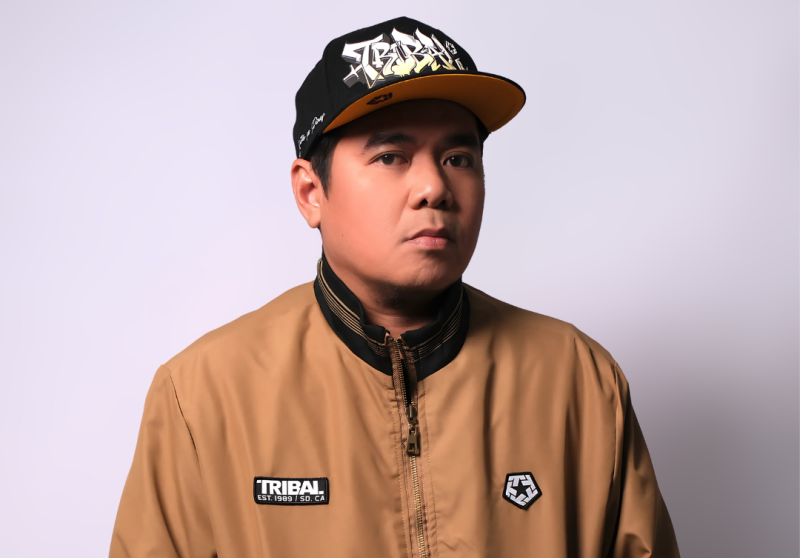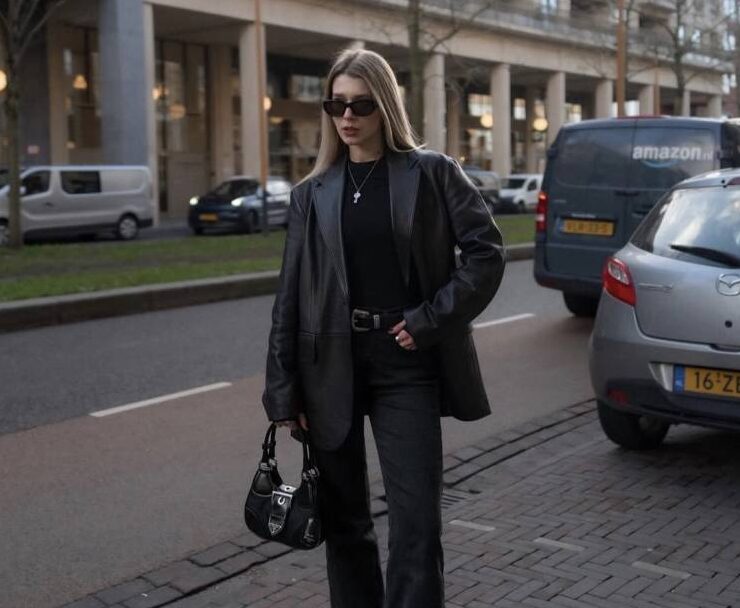Gloc-9: There’s no happier place than the Philippines, but…

If one listens closely to Gloc-9’s most potent sociopolitical songs, from “Upuan” (2009) to “Paliwanag” (2022), the hopefulness in his voice seems to have waned as the years went by. He certainly hears the change himself—“sad to say.”
While “Upuan” is fiery in its confrontation of the corrupt and its demand for accountability, “Paliwanag” feels more introspective. It tackles blind obedience while urging self-reflection and perseverance amid adversity and a broken system.
“I always try to be very positive. But one thing I have learned is that you can’t really change people, or make them say yes when they have already made up their minds to say no,” he shares in a recent group interview, including Lifestyle Inquirer.
That doesn’t mean, however, that he’s giving up on the Philippines—far from it. He stresses that he loves our country, and that there’s no happier place here on Earth. “But if you’re being realistic, with the way things are going, I’m scared for my kids,” says the trailblazing hip-hop artist whose real name is Aristotle Pollisco.
He turns emotional as he recalls the lyrics to “Paliwang,” parts of which go: “Sabihin mo, darating ba / Ang araw na ‘di ka takot iwanan ang mga mahal mo / Sa bahay na hindi sila mababasa / Tuwing malakas ang bagyo”
Lines that still ring true
While originally written during the pandemic, in hopes of sparking motivation in times of uncertainty, the track’s message continues to ring true in light of the recent corruption scandal involving ghost infrastructure projects. Can anyone have the heart to leave family behind for greener pastures, knowing that systemic corruption has made everyone back home vulnerable?
That even an established music artist, widely regarded as an OPM icon, harbors such worries is telling. “Maliit pa kasi ang mga anak ko,” points out Gloc-9, who has 17-year-old twins, Sean Daniel and Danielle Shaun, and an eight-year-old daughter, Savannah, with his wife, Thea.
“You can protect your children only to a certain extent,” he says. “Kung kasing yaman ko lahat ng mga kasama sa mga pinag-uusapan ngayon baka iba ang tono ko ngayon. Pwede kong i-provide sa kanila ‘yung security na hindi ko na iisipin na paano kung mahirapan silang makahanap ng trabaho. O paano kung dumating ang time na maging magulo sa Pilipinas tapos wala ako dito.”
Looking back, a different scenario could have easily played out. As a nursing graduate, Gloc-9 could have very well flown abroad to care for others, and, in his words—“maghugas ng pwet ng mga puti.” Still, he chooses to stay in the country and advocate for a future where Filipinos are given what they rightfully deserve.
“I hope maging mas okay ang Pilipinas at makuha ng mga Pilipino ang nararapat na sa kanila,” he says.
Where dreams are planted
A debt of gratitude and a resolve to pay it forward also plays a crucial role. “Dito ko naman binuo ang mga pangarap ko. Dito rin ako nagtanim. So sana ang mga bunga na aanihin ko ay maitanim ko rin ulit dito,” he says.
After 28 years in the entertainment industry, Gloc-9’s desire to plant and cross-pollinate the seeds of OPM has only grown stronger. Collaboration is a fundamental essence of hip-hop—something the rapper has fully embraced through his career, working with talents young and old, regardless of genre.
“Project A” (Universal Records Philippines), his full-length collaborative album with the underground rap pillar Abaddon, is yet another fruit of the seeds he has planted. The concept for the 10-track record—which include “Bonethugs,” “Halimaw,” and “Kakampi”—started out casually in a group chat until one day, Gloc-9 decided to step on the gas and get things moving.
The result is a thumping collection that showcases their contrasting perspectives and lyrical prowess. It also highlights each rapper’s distinctive style: Gloc-9’s penchant for storytelling and the melodic, and Abaddon’s grit and savage wordplay.
The reverence is palpable on both sides. Abaddon, a member of the formidable underground hip-hop collective Shockra, likens linking up with Gloc-9, his “master,” to hoisting a “trophy”—something that inspires a “different level of happiness.” Gloc-9, on the other hand, is always on the lookout for a new well of inspiration. And working with Abaddon, he says, is like putting his creativity “on steroids.”
“It’s like hearing something new and that’s refreshing to me,” he says.

Beyond personal glory
Gloc-9 would be lying if he said the prospect of working with stars like Eminem or gaining the same kind of international attention as EZ Mil doesn’t pique his interest. But he no longer aims for those. For the rapper, to demand more almost feels like “abuse” because hip-hop has already given him so much.
So beyond individual collaborations or personal glory, Gloc-9 is now at a stage in his career where mentoring feels like a natural next step. If his enduring career is the harvested fruit, guiding young talents is the act of planting the seeds back in the soil. He notes that while talent is what sparks growth, character is what sustains it.
“You can’t just pull in anyone simply because you want to mentor. But if you see someone with talent and a good head on their shoulders, I’m all for it,” he says. “You can hone talent; you can’t teach character.”
It won’t be easy, especially if you’re not privileged to begin with. Gloc-9 knows this all too well, having endured poverty, countless rejections, and juggling multiple jobs in his pursuit of a music career. But as cliché as it sounds, a love for the craft heavier than the weight of any hardship makes all the difference.
“If the intention and hard work are there, nothing is impossible,” he says. “If you ask me to list my failures from the past 28 years, I can’t. I don’t count them—only the blessings.”





















